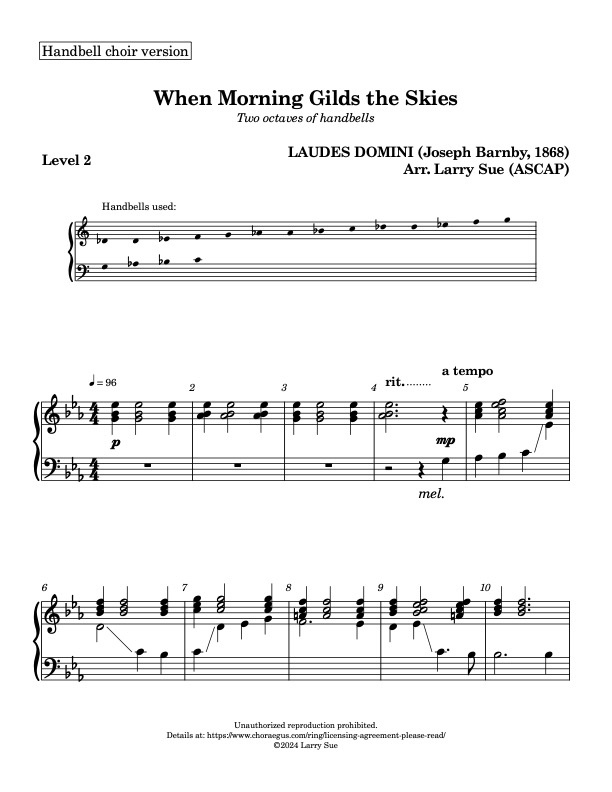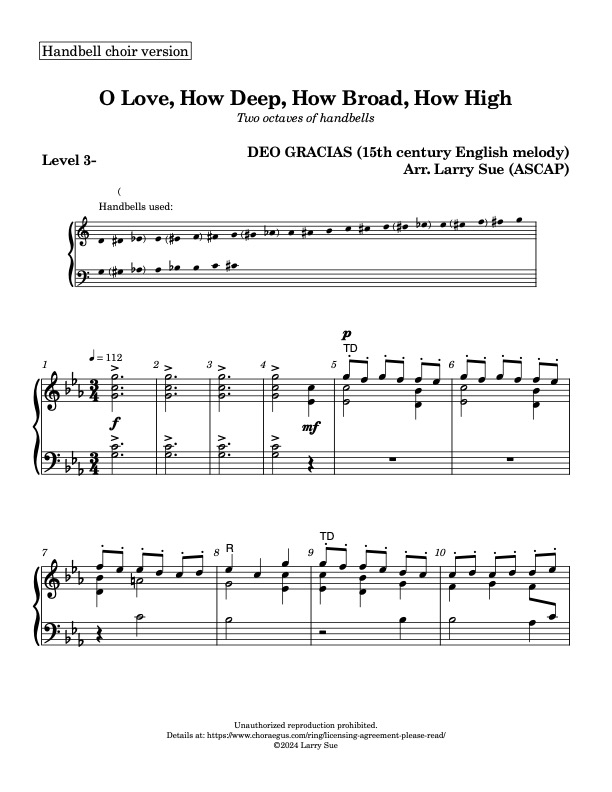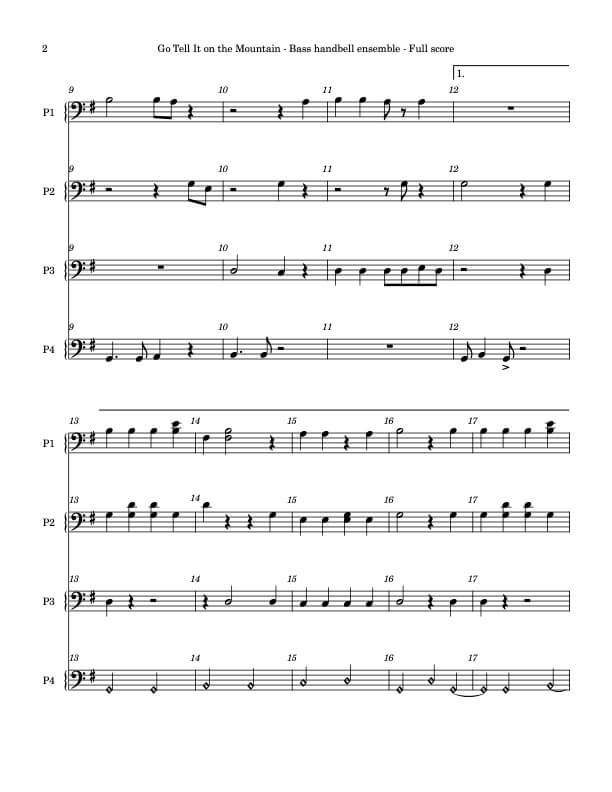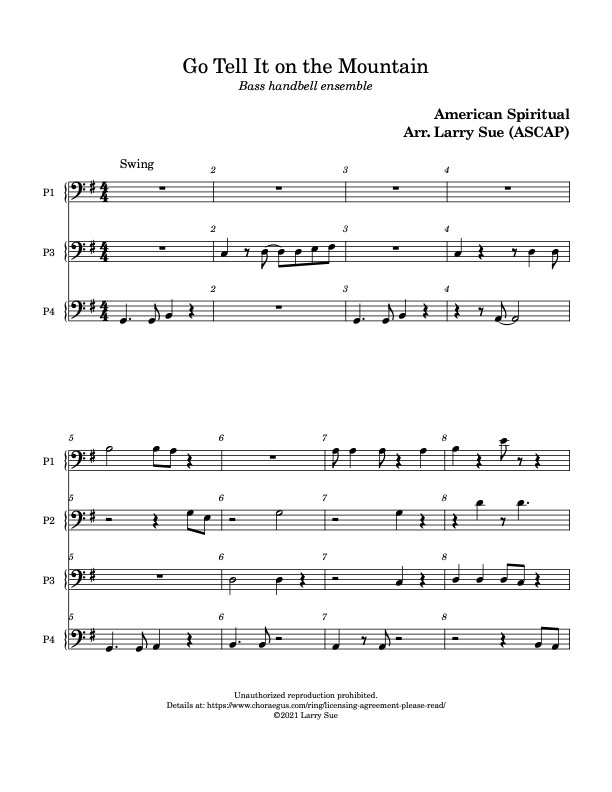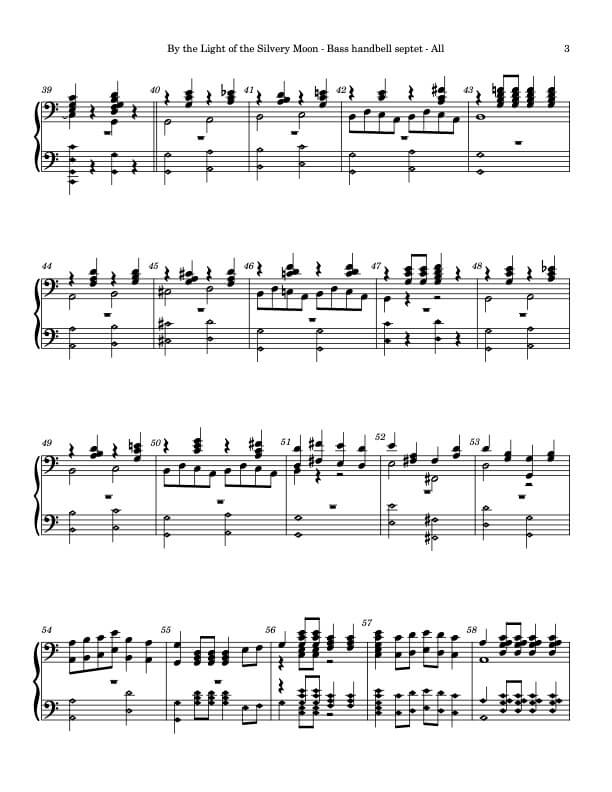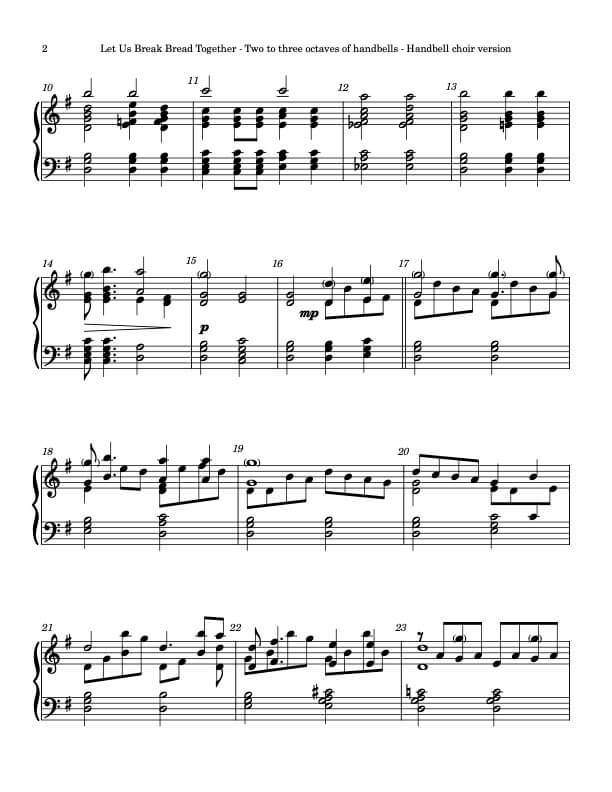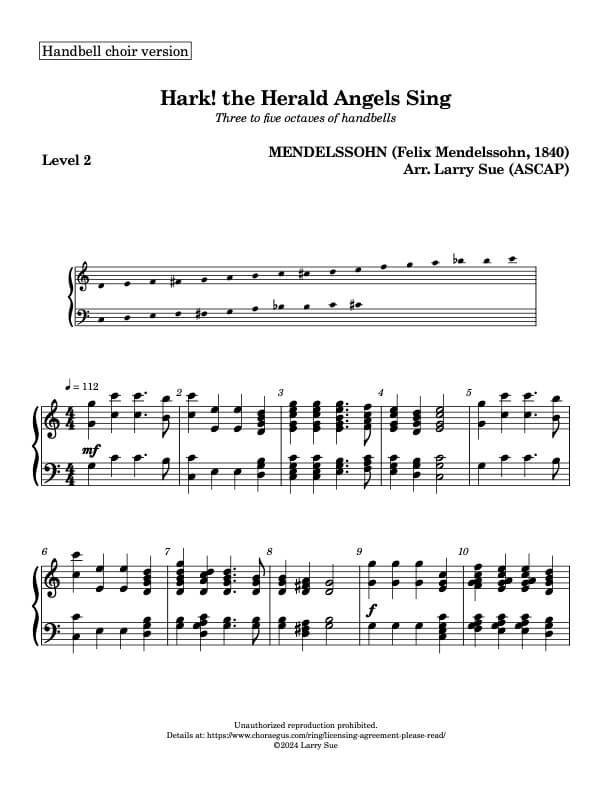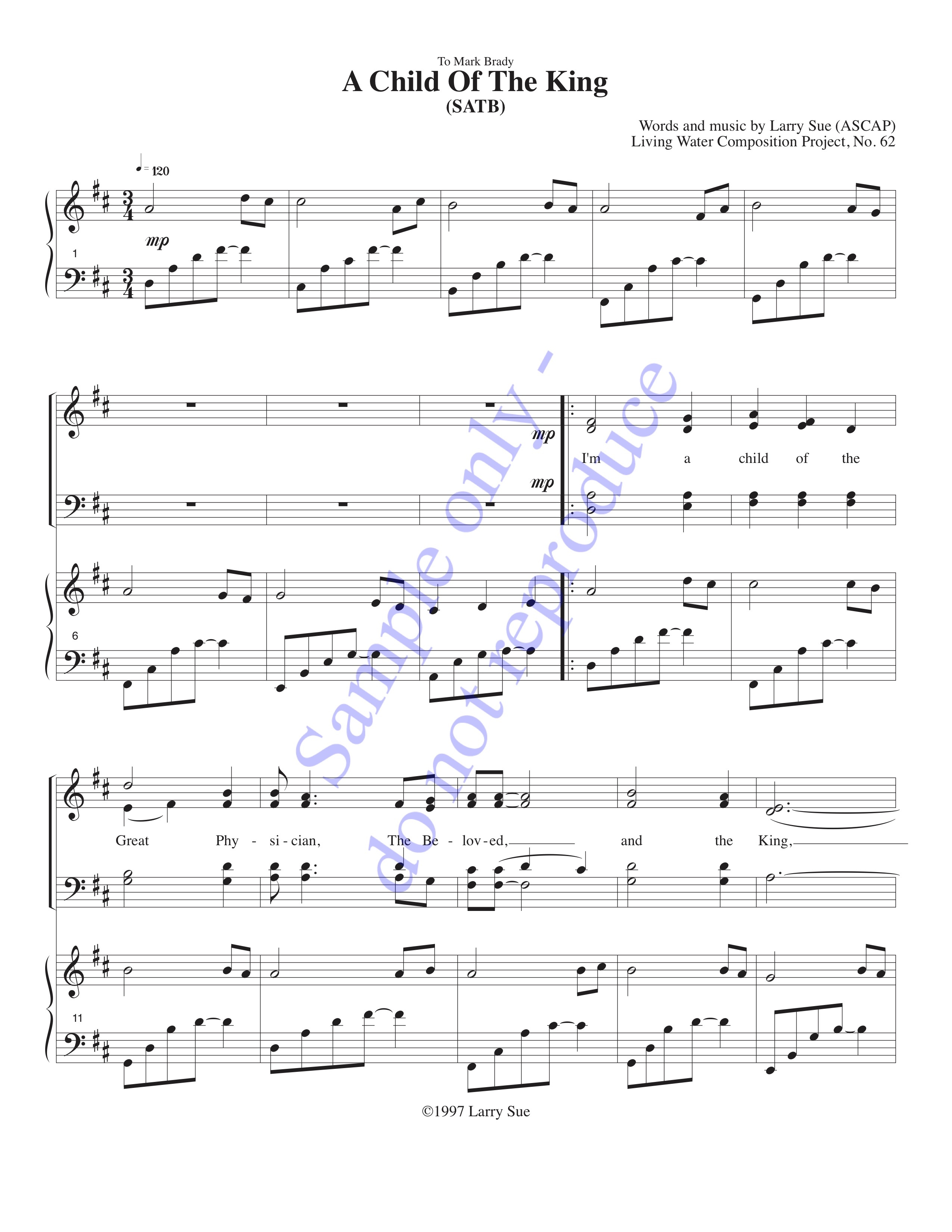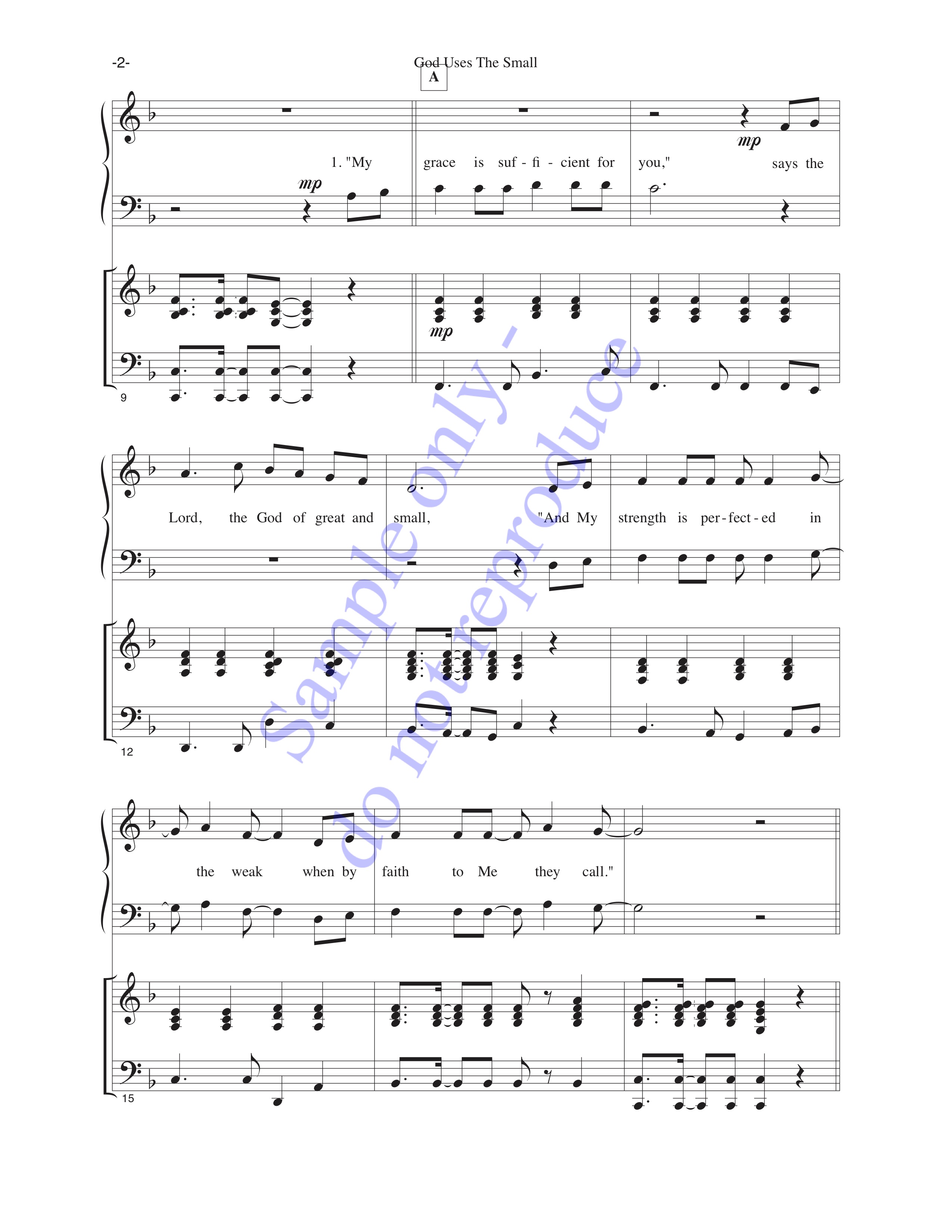Ukrainian Bell Carol was first known as “Schedryk”/«Щедрик» when Mykola Leontovych wrote it in 1916. And then… in 1941, Peter Wilhousky wrote the lyrics entitled “Carol of the Bells”, the title under which credit is usually given in the United States. We present our arrangement of Leontovych’s composition under its “more original” title. We think …
Tag: 5+ octaves
The current production range of handbells is seven-and-a-half octaves (G1 through C9). It's an amount of equipment to which many groups aspire, though the cost of all those bells is a major hurdle to cross.
Music for more than five octaves of bells (and chimes) can be orchestral in feeling, but often requires some rather specialized skills on the part of those playing the highest or lowest bells.
Ukrainian Bell Carol (Handbells, 5-7 octaves, Level 4)
Ukrainian Bell Carol was first known as “Schedryk”/«Щедрик» when Mykola Leontovych wrote it in 1916. And then… in 1941, Peter Wilhousky wrote the lyrics entitled “Carol of the Bells”, the title under which credit is usually given in the United States. We present our arrangement of Leontovych’s composition under its “more original” title. We think …
Apr 04
Cavatina (Handbells, 3 to 5 octaves, Level 3)
Stanley Myers’ Cavatina, brings a thoughtful air to the listener. Our arrangement for three to five octaves of handbells imitates the openness and simplicity of the original classical guitar score. Your ensemble will find it quite accessible in terms of the written notes, but will also experience tremendous scope for development of expression as they …
Feb 15
Winter Wonderland (Handbells, 5 octaves, plus handchimes, 3 octaves, Level 5)
According to Wikipedia, Richard Bernhard Smith wrote the lyrics for “Winter Wonderland” while recovering from tuberculosis in 1934. That same year, Felix Bernard added the tune that has now been covered over 200 times! This song speaks fun and romance during the cold season, about playing in the snow, and planning for great time ahead, …
Winter Wonderland (Handbells, 5 octaves, plus handchimes, 3 octaves, Level 5)
According to Wikipedia, Richard Bernhard Smith wrote the lyrics for “Winter Wonderland” while recovering from tuberculosis in 1934. That same year, Felix Bernard added the tune that has now been covered over 200 times! This song speaks fun and romance during the cold season, about playing in the snow, and planning for great time ahead, …
Jun 28
Premiere performance video of “Smiles”!
We premiered our arrangement of Smiles by Lee S. Roberts and J. Will Callahan at the 2023 Bay View Week of Handbells. Smiles came into being in 1917 or 1918 at Mr. Callahan’s Bay View cottage; the bit of Michigan woodland next to the cottage that Callahan formerly owned commemorates the occasion with a sign. …
To God Be the Glory (TO GOD BE THE GLORY) (Handbells, 3 or 5 octaves, Level 4)
Fanny Crosby and William Doane were a “dynamic duo” of hymn-writing in the decades on either side of the year 1900. She wrote the words, and he composed the music. One of their best-known hymns is To God Be the Glory Personal note: This was the favorite hymn of Larry’s great-aunt Pat! To God be …
Winter Dance (Handbells, 7 octaves plus handchimes, 2 octaves, Level 4)
Seiichi Kyoda composed this wonderful piece. His group Uttara-Kuru performed Winter Dance with a synthesis of traditional Japanese instruments (shakuhachi, koto, etc.) and electronica. The picture is of the citizens of a remote village celebrating life with a community dance. This is the version of Winter Dance being performed at the 2025 Bay View Week …
Jan 15
Mack the Knife (Handbells, 5-8 octaves, plus handchimes, 3 octaves, Level 5)
Bertolt Brecht and Kurt Weill wrote Mack the Knife in 1928 for the Threepenny Opera. Louis Armstrong, Ella Fitgerald, and Bobby Darin performed it, guaranteeing its place in our music social awareness. It’s such a happy, bouncy song that you’d hardly know it was talking about a hit man. But the legend lives on, and …
Mack the Knife (Handbells, 5-8 octaves, plus handchimes, 3 octaves, Level 5)
Bertolt Brecht and Kurt Weill wrote Mack the Knife in 1928 for the Threepenny Opera. Louis Armstrong, Ella Fitzgerald, and Bobby Darin performed it, guaranteeing its place in our music social awareness. It’s such a happy, bouncy song that you’d hardly know it was talking about a the bad, bad guy in the story. But …


